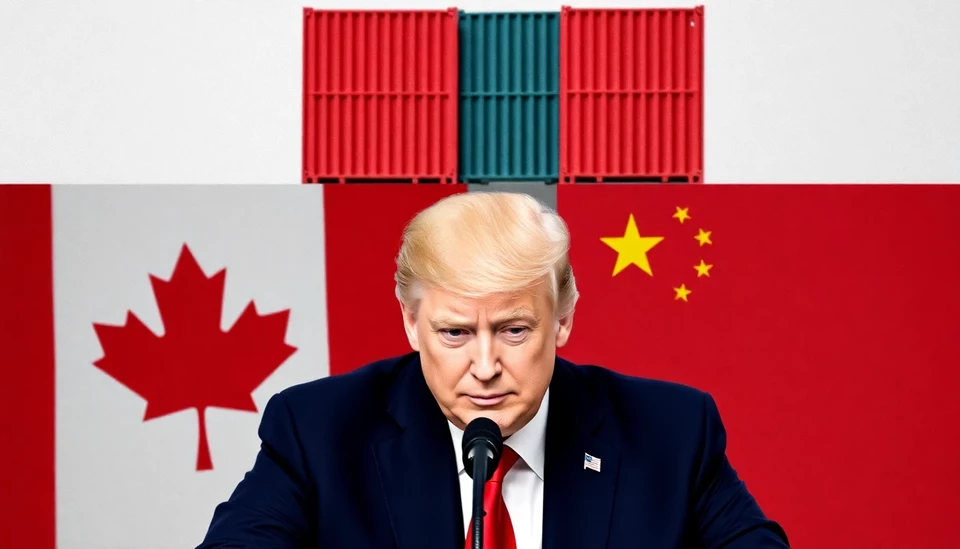
In a bold move that has sent ripples through the international trade community, former President Donald Trump has announced significant tariffs on key trade partners Canada and Mexico, as well as on China. The newly imposed tariffs, set at 25% on imports from Canada and Mexico and 10% on imports from China, have sparked a renewed debate over trade policy and its implications for the global economy.
Signing the order from his Mar-a-Lago estate, Trump emphasized that the tariffs are necessary to protect American jobs and industries from what he described as unfair trading practices. "We are putting America first," Trump stated, reiterating a familiar mantra from his previous presidential campaign. He argued that these tariffs will help to level the playing field for American manufacturers and workers who have faced competition from abroad.
This decision has raised concerns among economists and policymakers alike, who warn that such tariffs could lead to increased prices for consumers and potential retaliation from the affected countries. Trade analysts suggest that Canada's lumber and dairy industries, as well as the automotive sector in both Canada and Mexico, could be particularly hard hit. "These tariffs could escalate into a trade war," said one analyst, voicing concerns that could undermine years of trade agreements and cooperative relations.
Moreover, reactions from the countries affected have been swift. Canadian Prime Minister Justin Trudeau and Mexican President Andrés Manuel López Obrador have expressed their strong discontent with the tariffs, stating that they undermine the spirit of cooperation outlined in the United States-Mexico-Canada Agreement (USMCA), which was signed to replace the old NAFTA deal. "We will not stand idly by," Trudeau promised, hinting that Canada would consider retaliatory measures in response to the tariffs.
In contrast, U.S. trade representative Katherine Tai defended the tariffs, arguing that they are crucial in ensuring that trading partners adhere to fair practices and do not exploit loopholes in trade agreements. "We are committed to enforcing U.S. trade laws to protect American workers and industries," Tai remarked. Nonetheless, the long-term impact of these tariffs remains uncertain, and many are watching closely to see how trade relations evolve in the coming months.
As the landscape of international trade continues to shift, analysts will keep a keen eye on how these tariff measures will influence not only the U.S. economy but also its relationships with vital partners across the globe. Further developments are expected, and discussions surrounding trade policy will undoubtedly remain a central topic of debate in both domestic and international arenas.
In summary, the new tariffs imposed by Trump could lead to a series of consequences that ripple across various economies, and the reactions from neighboring countries and other global partners will play a significant role in shaping the future of U.S. trade policy.
#TrumpTariffs #TradeWar #USCanadaTrade #MexicoTradeRelations #ChinaTariffs #GlobalEconomy #TradePolicy
Author: Daniel Foster




